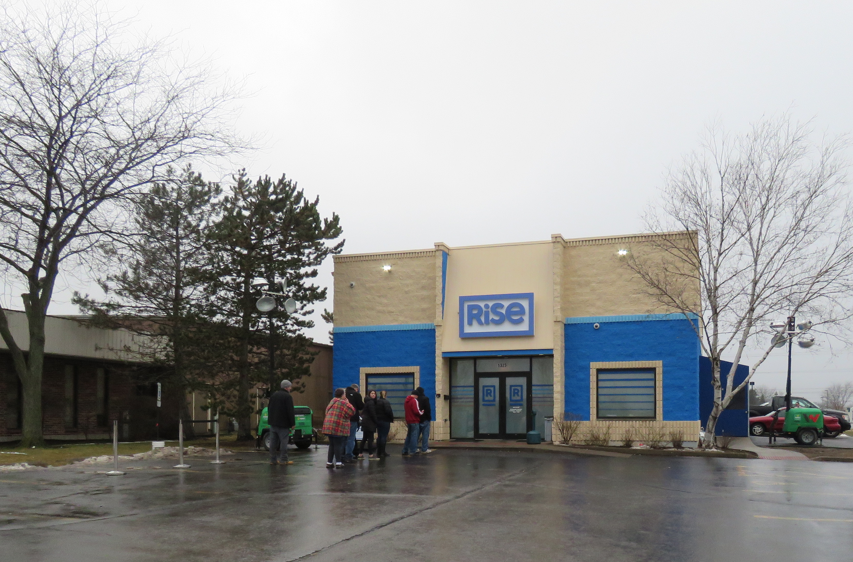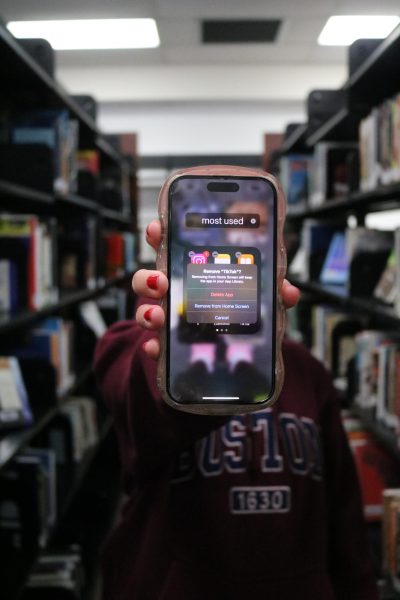Illinois becomes 11th state to legalize recreational marijuana
On Jan. 1, following a law passed last year by the Illinois General Assembly, Illinois became the 11th state in the nation to legalize recreational marijuana.
This law states that all adults over the age of 21, who are residents of Illinois, can purchase up to 30 grams of marijuana plant material. It also states that it is a felony to give any of the marijuana bought legally to other people.
People in prison for possession of fewer than 30 grams of marjuana — previously a crime — will be released and have their records expunged. Anything over 30 grams is still considered a felony with a mandatory jail sentence.
According to the Chicago Tribune, the Illinois House of Representatives passed the law by a 66-47 vote, and the State Senate passed it by a 38-17 vote. The representative for Libertyville’s district, Mary Edly-Allen, voted “no” on the bill.
“I’m totally for expunging records. I don’t think that anyone should be incarcerated for [less than 30 grams of] marijuana, but I think we’re about two years ahead of ourselves because police don’t have any way of testing in the field [for DUIs],” explained Representative Edly-Allen.
One of the most prevailing issues surrounding the law, as Representative Edly-Allen referenced, is the inability to test people for cannabis on the spot. Libertyville’s mayor, Terry Weppler, said during a phone interview, “The problem is, there’s no breathalyzer for marijuana use, and that’s why I’m against it.”
Officer Wayne Kincaid, Libertyville High School’s police liaison, added, “We’ll probably find more people driving under the influence [of marijuana]. Studies have shown that where they’ve done this before, like in Colorado or Oregon, that DUIs go up.”
Libertyville is $180,000 short of the funds to get equipment to test whether people have ingested marijuana. Even if Libertyville were able to pay for this, it would need to be approved by the courts before it could be used by police officers. Marijuana also stays in the body for much longer than alcohol does, so it would take new technology to test for this, according to Mayor Weppler.
The new law outlines that amounts will be taxed based on the percentage of Tetrahydrocannabinol, or THC, in the product. THC is the chemical in marijuana that releases dopamine into the brain, giving people the high they feel when they use marijuana.
According to ABC 7 News, recreational cannabis products containing less than 35 percent THC will be taxed at 10 percent of the price; 35 percent THC will be taxed at 20 percent; and more than 35 percent THC will be taxed at 25 percent. Individual municipalities will be able to exact additional taxes on recreational marijuana, if they choose to do so. Medical marijuana will not be taxed.
Representative Edly-Allen would like more of the tax money to go to mental health and substance abuse help, stating, “We need to support the people who struggle with addiction…We have very little money going towards that. Some people will say, ‘We don’t need to tax [cannabis] that much,’ but we need to take care of the people who are falling through the cracks.”
This law has led to the opening of 37 recreational marijuana dispensaries across Illinois. The Chicago Tribune explained that these stores brought in more than $3.2 million on the first day they were open, leading to many having to close because of the immense demand. Dispensaries are expected to bring in $420 million by the end of the year.
In a village newsletter sent out to Libertyville, there was a poll on whether or not Libertyville should try to get a dispensary, and 75 percent of the respondents said “no.” The Libertyville Village Board also voted not to zone a dispensary in town. According to Mayor Weppler, even if they voted in favor of one, “There’s [a dispensary] in Mundelein, and I don’t think another would open up that close.”
The new law may also increase the use of marijuana in teenagers. According to the National Survey on Drug Use and Health, in the other states that have legalized cannabis, use among those 12 and older is 10 percent greater than in other states.
It is likely that LHS will see an upsurge in marijuana use because of this law. According to Officer Kincaid, “Whenever you have more of something and it’s no longer illegal…and since it’s recreational, there’s more supply, so students will have more access to it.”
LHS has not taken any specific measures to prevent marijuana use after this law was passed, but Officer Kincaid explained that the school will continue to use drug-sniffing dogs and educate students on the dangers of marijuana.




![Mr. Abullh Ali, manager/assistant, helps open Queen Yemeni Coffee in downtown Libertyville at 606 North Milwaukee Ave. With the help of employees such as manager and LHS senior Yousef Taha, they are able to bring the Yemeni and Ethiopian culture to Libertyville by using their Queen spices, cinnamon and cardamom in their drinks such as Adani Chai, which is inspired by Sheda, the Queen of Yemen and Ethiopia. “The history of our coffee [is] a long history and we believe that Yemen and Ethiopia started the coffee and we are bringing something unique to the community,” Mr. Ali said.](https://www.lhsdoi.com/wp-content/uploads/2025/04/Photo-1-600x400.jpg)



